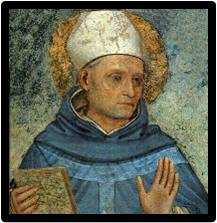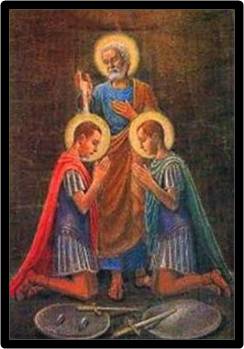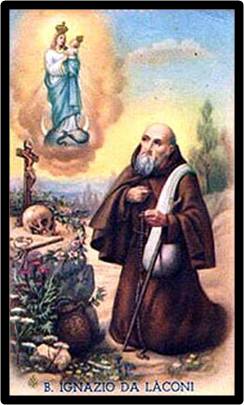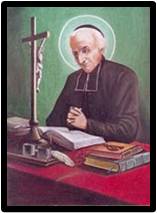MAY 10 - ST. ANTONINUS

St. Antoninus was born at Florence in Italy. Even as a young boy he showed that he had good sense and will power. When he was just fifteen, he asked to join the Dominican order. He looked young, and he was small and not very healthy.
The prior (parish priest) studied him for a moment and then said, “I’ll accept you when you know ‘Gratian’s Decree’ by heart.” “Gratian’s Decree” (or the Canon law) was a book, hundreds of pages long. So, in other words, the prior was telling Antoninus that he could not join them.
But Antoninus accepted the challenge and returned one year later. It is hard to describe how surprised the prior was when he found that Antoninus had learnt by heart, the whole decree! Of course, he was accepted at once. (Though, it was not his skill to memorize that changed the prior’s mind. It was because he had proved he was serious about his vocation to become a priest.)
Antoninus was just sixteen but continued to surprise everyone by the way he lived the hard life of his order. As he grew older, he was given one important position after another. He was a member of the council of Florence which tried to end the arguments between the churches of the east and west. Then he was made Bishop of the Dominicans. Diplomat. Theologian. Healer.
He was a good example for his fellow Dominicans and they loved and respected him. He had the gift of healing and was also a good teacher of religious studies and the Catholic faith. In March, 1446, Antoninus became the archbishop of Florence, Italy.
He was named “The father of the poor”. He never refused to help anyone. When he had no more money, he would give his clothes, his shoes, his furniture or his one mule. Many times this mule was sold to help someone. Then it would be bought back for him by rich parishioners. Of course, he would soon sell it again to help someone else!
Often St. Antoninus would say, “A successor of the apostles should not own anything except the wealth of virtue.” St. Antoninus died in 1459.



